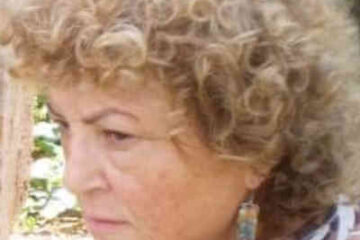Click here to read the PDF version![]()
It all got started in Germany.
With hate the Nazis got tough.
We Jews were placed in jeopardy.
That should have been enough!
At first the Jewish economy,
with a legislative shove,
was strangled without ceremony.
That should have been enough!
Out with our government leaders,
With teachers they got rough.
Ignored by world-wide readers.
That should have been enough!
They singled out our writers.
“Get rid of that Jewish stuff!”
Our books they burned with their lighters.
That should have been enough!
On Crystal Night they wrecked our homes
Our synagogues were snuffed
They beat us, jailed us; broke our bones.
That surely was enough!
Then war – escape was ended.
But their plans got fired up.
A ‘Final Solution’ was rendered.
That surely was enough!
They drove us into the ghettos.
They made us a wretched lot.
Hardly a bread or potatoes
It surely was enough!
The trains then started moving,
To concentration camps.
Where life and death decisions,
Were made on the railroad ramps.
With gas, where we thought there were showers,
Like chickens are killed in a pen.
Surrounded by wire and towers;
Our children, our women, our men.
Where were you God? What was your part?
Why were ‘The Chosen’ – us?
Towards what end, we ask you Lord
Were six million souls enough?

